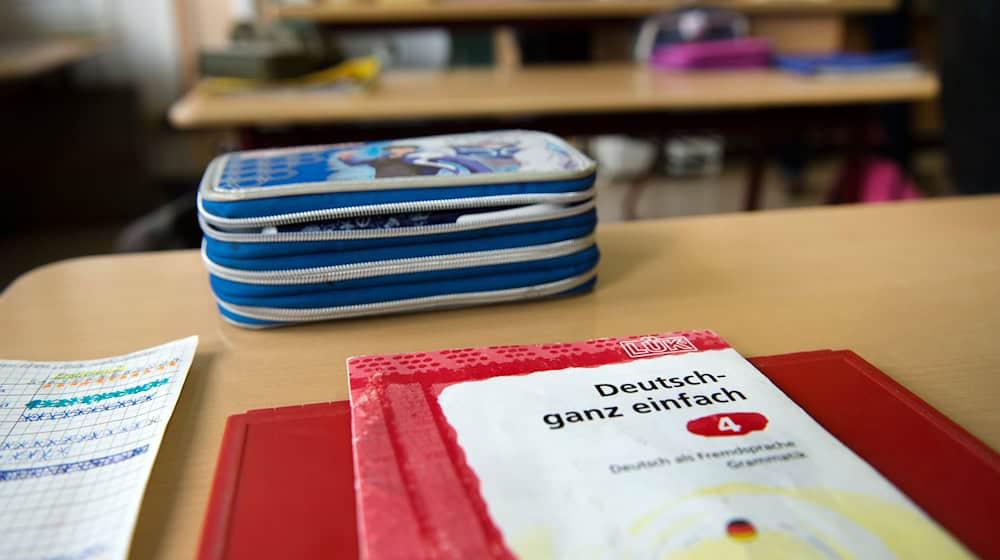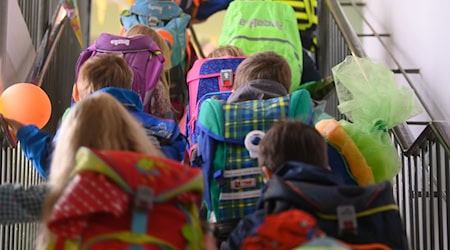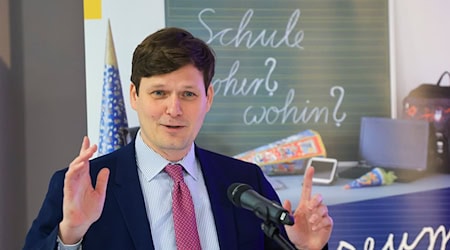Many children with foreign roots still had no place at Saxon schools several weeks after the end of the vacations. In its answer to a minor question in parliament, the Ministry of Culture stated that there were 853 such children at the beginning of September. There were even 1,353 places missing at the start of the school year. Left-wing politician Nam Duy Nguyen, who submitted the question to the state parliament, considers this unacceptable. "The lack of places for weeks to months is not only a problem for the children's learning, but also a major obstacle to integration."
Union proposes school place reserves
The Education and Science Union welcomed the falling numbers of immigrant children and young people who have to wait for a school place in Saxony. "However, every school-age child who still has to wait is one child too many. The precautionary establishment of school place reserves would be one way of being able to react more quickly in future," said the deputy head of GEW Claudia Maaß.
"However, school places alone are not enough to ensure successful learning at school. The current framework conditions make it almost impossible to learn German as a language of education at a large number of schools and therefore also make equal participation in mainstream lessons more difficult," emphasized Maaß. Rapid integration into the mainstream system is a welcome goal. However, the enormous reduction in learning to one year in the preparatory classes should not lead to children without the required language level having to attend mainstream lessons without further support.
Ministry of Education points to positive effects of measures
The Saxon Ministry of Education does not have any information on how many foreign children and young people are currently being taught in Saxony. The reason for this is that stating citizenship is voluntary when registering for school. In its response to the minor inquiry, the ministry also referred to measures that are intended to counteract the lack of school places for foreign children and have already had a positive effect.
Newly arrived children and young people have been able to register digitally in the school portal since March 2024. Since the 2025/2026 school year, all newly immigrated first-graders have also been enrolled directly in class 1 at the elementary school in the school district, it said. If there is a lack of capacity in the preparatory class, girls and boys can be integrated directly into the regular class and then receive additional lessons in German as a second language.
GEW: Lessons in German as a second language often fail
For Maaß, this is not enough. "There can only be a fair education system for all children if the fundamental integration deficits in the Saxon education system are rectified. This includes, above all, ensuring that the children actually receive the language support lessons required by law," said the GEW deputy head. In most cases, it is the DaZ lessons (German as a second language) that are initially omitted without replacement. In many schools, especially in rural areas, there are too few or no DaZ teachers available.
"It is therefore absolutely essential to expand the training and recruitment of GFL teachers. The ability to teach German as a second language must be an integral part of teacher training during their studies," demanded the GEW deputy leader. In addition, further and advanced training for teachers at general education schools is necessary so that they can implement high-quality teaching.
Copyright 2025, dpa (www.dpa.de). All rights reserved










